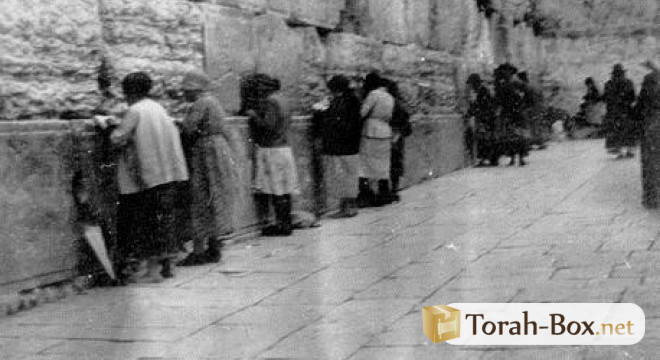
Jewish Thinking
Why Was the Redemption Orchestrated by the Merit of Pious Women?
The redemption from Egypt is connected to the merit of pious women. Our masters wrote: "Israel was delivered from Egypt through the merit of pious women."
How did that happen? The Talmud in Sota (11b) reports: "When women came to draw water from the Nile, God filled their jugs with small fish, so they drew both fish and water. They placed two pots on the fire: one for boiling water and another one to cook the fish. They brought the pots to their husbands and proceeded to wash the latter’s hands and feet, massaged their shoulders and fed them food and drink. Thereafter, they united with them in secluded spots in the fields. So, the children of Israel multiplied, and through that merit, the redemption from Egypt was accelerated. "
It is said in the Parsha of Vayakhel that Moshe built the copper basin for the ablutions of the Cohanim (Jewish priests) with the mirrors of these heroic women (Shemot 38, 8). Rashi explains that the daughters of Israel used mirrors to make themselves attractive for their husbands. These mirrors were cherished by God, who encouraged Moshe to utilize them for the construction of the Tabernacle. Indeed, Moshe, thinking these mirrors were a symbol of vanity, would have done away with them.
But God said to him: "Quite the contrary, take them with both hands! These mirrors are very dear to me because, through them, wise and heroic women encouraged many births and erected many generations in Egypt. When their husbands came home from work, back-broken and exhausted, they welcomed them with food and drink, embraced them, looked together in the mirror, and seduced them with words such as: "I am more beautiful than you." There were holy unions, and they bore babies in the orchards, as described in the Song of Songs: "Under the apple tree, I woke you up."
The purification basin of the Tabernacle was therefore built with these mirrors, symbols not of vanity, but of strengthening bonds between husband and wife at a time when they felt crushed by the overwhelming Egyptian slavery.
Similarly, on the day of the gift of the Torah, women acquiesced and accepted the Torah before the men. Because women accept the words of the Torah more readily.
Hashem ordered to speak with the women in a pleasant and soft tone, as the verse in Shemot (19-3) states: "So, you will speak to the house of Yaakov and you will tell the children of Israel". The term used for the house of Yaakov (women), is "Tomar", this verb is defined as a sweet and gentle approach to convey a message. While for the children of Israel (men), it is written "Tagid", defined as a harsher and more determinant form of speech.
From these verses, we may learn that women accepted the Torah more readily than the men, not because they were coached or coerced by their husbands, but because they were influenced directly by God.
Torah-Box.net Account
To access the entire Torah-Box.net website, sign up for free in less than a minute.
Weekly Parsha
 Candle Lighting - New York
Candle Lighting - New York
Friday December 19th, 2025 at 16:13 *Shabbat ends at 17:17 *
change my location
* Times given as an indication, check the times of your community











